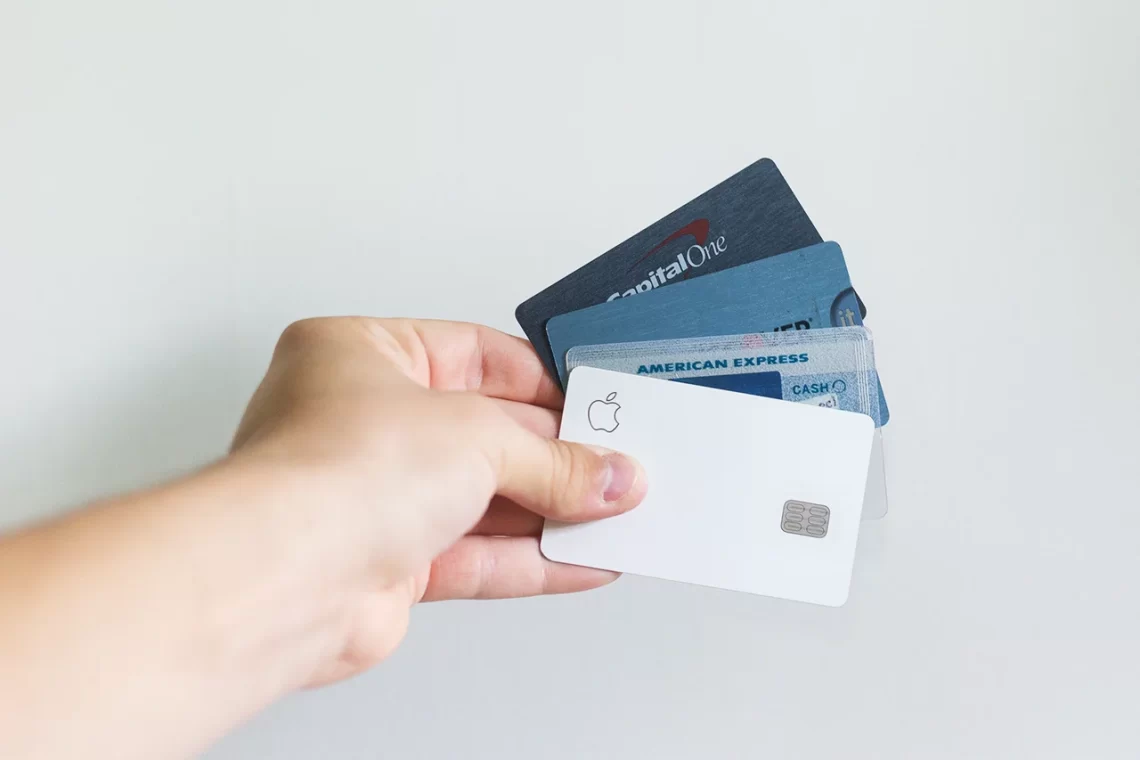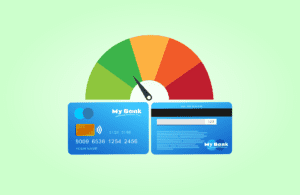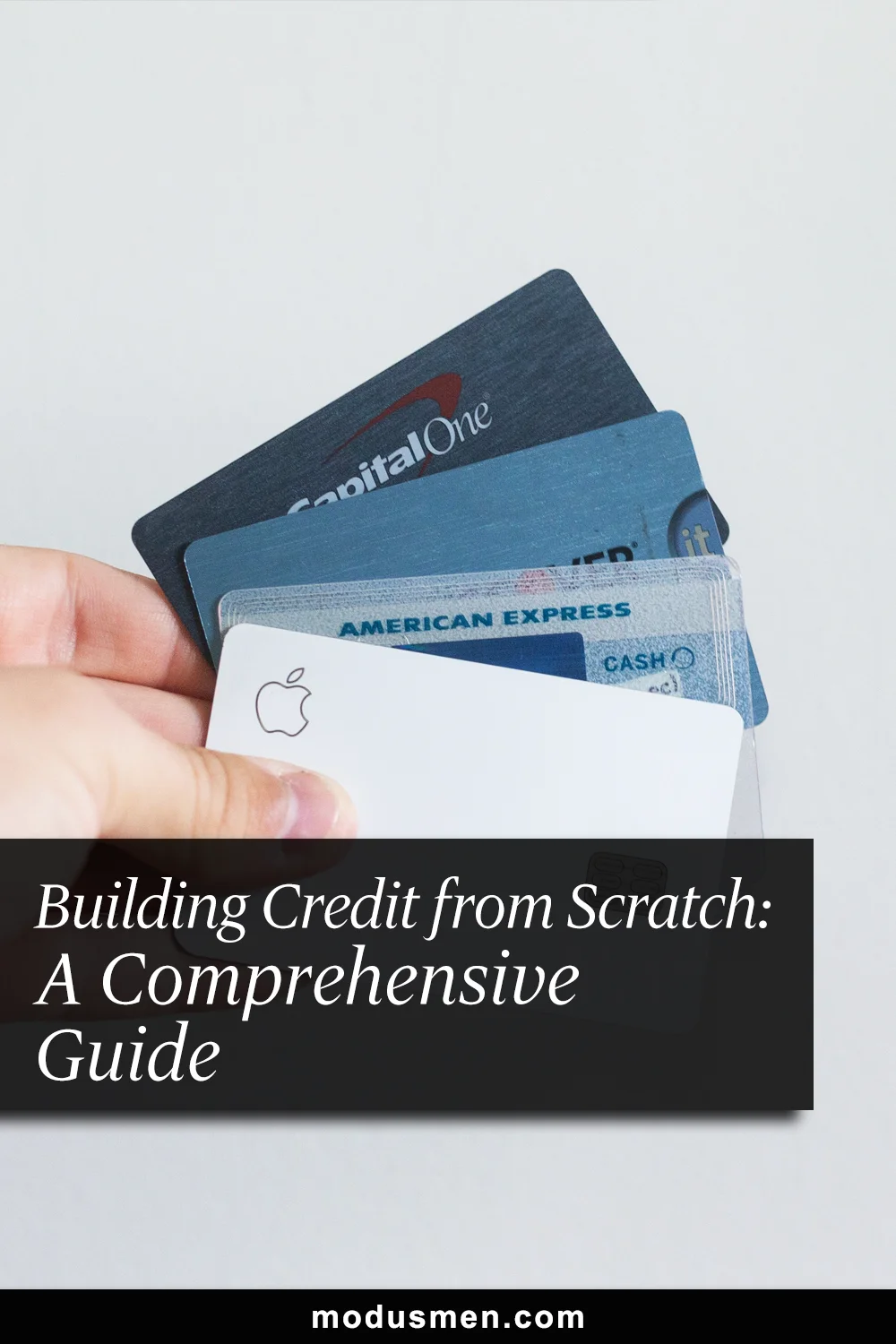
Build Credit from Scratch: Proven Strategies for Success
Starting your credit journey or rebuilding after a setback can feel overwhelming. Unfortunately, credit is essential in today’s world. You need it to lease an apartment or obtain a mortgage. With the price of automobiles, you’ll likely need credit to buy a car. Therefore, building a strong foundation is essential.
One effective way to build credit from scratch is by using a secured credit card. In this article, we’ll guide you through proven strategies to build your credit. These include secured credit cards and other methods. Furthermore, discover tips to avoid debt and improve your financial future. So, let’s get started on the path to a better credit score and greater financial opportunities!
Step 1: Check Your Current Credit Score and Identify Outstanding Issues

Before you start building or rebuilding your credit, it’s essential to know your current credit status. This step will give you a clear picture of your financial health and help you identify any issues that need to be addressed.
- Obtain Your Credit Report: You can get a free copy of your credit report from each of the three major credit bureaus (Equifax, Experian, and TransUnion) once a year through AnnualCreditReport.com. Reviewing your credit report will help you understand your credit history and identify any errors or discrepancies.
- Check Your Credit Score: Your credit score is a numerical representation of your creditworthiness. It shows how likely you are to repay debts. Lenders use this score to decide if they will approve your credit applications. A higher score means better chances for loans and lower interest rates. So, knowing your credit score is important. Many financial institutions and credit card issuers offer free credit score monitoring services. You can also use websites like Credit Karma or Credit Sesame to check your score. Regularly checking your score helps you stay informed and make better financial decisions.
- Identify Outstanding Issues: Carefully review your credit report for any errors or discrepancies, such as incorrect account information or fraudulent activity. Dispute any inaccuracies with the credit bureaus to have them corrected. Additionally, look for negative items like late payments, collections, or high balances. Addressing these issues, such as setting up payment plans or paying down debt, can help improve your credit score over time.
- Set Realistic Goals: Based on your current credit status, set achievable goals for building or rebuilding your credit. This might include paying down debt, making timely payments, or reducing your credit utilization ratio.
Start with a clear understanding of your credit situation. This way, you’ll be better prepared to improve your credit score. Now, let’s move on to obtaining a secured credit card. This is the next step in your credit-building journey.
Step 2: Obtain a Secured Credit Card
To build credit from scratch, you need to start with the right tools. A secured credit card is one of the most effective options available. This type of card is specifically designed to help individuals establish or rebuild their credit history. By understanding how secured credit cards work and how they can benefit you, you’ll be well on your way to improving your financial standing.
According to the Consumer Financial Protection Bureau, secured credit cards are a recommended tool for building credit, especially for those starting from scratch. The Consumer Financial Protection Bureau (CFPB) is a U.S. government agency that ensures fair treatment by financial institutions. It also provides resources to help consumers make informed financial decisions.
What is a Secured Credit Card and How Does It Help You Build Credit?
A secured credit card is a type of credit card that requires a cash deposit as collateral. This deposit acts as a security for the card issuer and typically determines your credit limit. For example, if you deposit $500, your credit limit will usually be $500. This setup reduces the risk for the issuer, making it easier for individuals with no credit or bad credit to get approved.
Using a secured credit card responsibly can significantly help you build credit from scratch. Here’s how:
- Credit Reporting: Most secured credit card issuers report your payment history and card usage to the major credit bureaus. By making timely payments and keeping your balance low, you can demonstrate responsible credit behavior. As a result, your credit score will increase over time.
- Building a Positive Payment History: Consistently paying your secured credit card bill on time is one of the most important factors in building a good credit score. This shows lenders that you are reliable and capable of managing credit responsibly.
- Transition to Unsecured Credit: After demonstrating responsible use of a secured credit card, many issuers will offer you the opportunity to transition to an unsecured credit card. This can further improve your credit profile and increase your credit limit without requiring additional deposits.
By starting with a secured credit card, you’re taking a crucial first step towards building a solid credit foundation. In the next sections, we’ll explore the key features to look for in a secured credit card and provide tips for choosing the best one for your needs.
Key Features of Secured Credit Cards
Before obtaining a secured credit card, it’s essential to understand the key features that can impact your credit-building journey:
- Cash Deposit: The cash deposit you provide determines your credit limit. For example, if you deposit $500, your credit limit will typically be $500. This collateral reduces the risk for the credit card issuer. If you default, they can recover the money from your deposit. Therefore, it makes it easier for you to access credit even without a prior credit history.
- APR Rates: The Annual Percentage Rate (APR) represents the interest you’ll be charged if you carry a balance on your credit card from month to month. Since secured credit cards often have higher APR rates compared to regular credit cards, it’s crucial to pay off your balance in full each month to avoid interest charges.
- Annual Fees: Some secured credit cards come with annual fees to maintain your account. These fees can vary, but there are options available with no annual fees. Therefore, be sure to compare offers and choose a card that fits your budget and needs.
- Credit Reporting: As mentioned earlier, it’s vital to choose a secured credit card that reports your payment history to the major credit bureaus (Equifax, Experian, and TransUnion). This reporting is essential for building a positive credit history.
- Credit Limit Increases: Some secured credit cards offer the opportunity to increase your credit limit after demonstrating responsible use. This can be done by either adding more to your deposit or through periodic reviews by the issuer.
- Transition to Unsecured Credit: As previously noted, many secured credit cards provide a pathway to transition to an unsecured credit card after a period of responsible use. This transition can help you further build your credit profile and increase your credit limit without additional deposits.
- Rewards and Benefits: While not as common, some secured credit cards offer rewards programs, such as cash back or points for purchases. These benefits can add extra value to your card usage.
Understanding these key features will help you choose the right secured credit card and set you on the path to building a strong credit foundation. In the next sections, we’ll provide tips for selecting the best secured credit card for your needs.
Tips for Choosing a Secured Credit Card
When selecting a secured credit card, consider the following tips to make the most of your credit-building journey. These tips are prioritized to help you focus on the most critical aspects first:
- Credit Bureau Reporting: Ensure the card issuer reports your responsible credit behavior to the major credit bureaus (Equifax, Experian, and TransUnion). This reporting is crucial for building a positive credit history and is a standard practice among reputable secured card issuers.
- Cash Deposit: Look for a card with a reasonable cash deposit requirement that fits your budget. This deposit will determine your credit limit, so choose an amount you can comfortably afford.
- Annual Percentage Rate (APR): Compare APR rates, as they can vary widely, with many cards having rates of 26% or higher. While paying your full balance each month minimizes the impact of APR, opting for a card with a lower rate can provide peace of mind and save on interest costs if you ever need to carry a balance.
- Annual Fee: Prioritize cards with no or low annual fees to minimize costs. Some secured credit cards offer competitive features without charging high fees, so shop around for the best deal.
- Interest-Free Grace Period: Look for a secured credit card that offers an interest-free grace period on purchases. This period allows you to pay off your balance without incurring interest charges, provided you pay in full by the due date.
- Upgrade Options: Some secured credit cards offer a clear path to upgrade to an unsecured credit card after demonstrating responsible use. Check if the issuer provides this option and what the criteria are for upgrading.
- Online Account Access: Choose a card issuer that offers convenient online account access. This feature allows you to manage your finances easily, make payments at any time, and stay in control of your credit card activities with just a few clicks. Efficiently tracking your spending, reviewing statements, and making timely payments contribute to a seamless credit-building experience.
- Customer Service: Good customer service can make a big difference, especially if you encounter any issues or have questions about your account. Look for card issuers with a reputation for excellent customer support.
- Additional Fees: Be aware of any additional fees that might apply, such as foreign transaction fees, late payment fees, or balance transfer fees. Understanding these fees can help you avoid unexpected costs.
- Rewards Programs: While not as common, some secured credit cards offer rewards programs, such as cash back or points for purchases. If you can find a card with rewards that align with your spending habits, it can add extra value to your card usage.
By considering these tips, you’ll be better equipped to select a secured credit card that aligns with your financial goals and helps you build a strong credit foundation.
Finding the Right Secured Credit Card: Resources to Kickstart Your Credit Journey

If you’re ready to embark on your credit-building journey with a secured credit card, we’ve compiled a list of reliable resources to help you find the perfect card to suit your needs. These websites offer valuable insights, comparisons, and user reviews. With this information, you can make an informed decision, ensuring you start building credit responsibly on the right foot.
- NerdWallet: NerdWallet provides comprehensive reviews and comparisons of secured credit cards. Their expert insights and user reviews can help you find a card that fits your financial goals.
- Credit Karma: Credit Karma offers personalized recommendations based on your credit profile. They also provide user reviews and detailed information on various secured credit cards.
- Bankrate: Bankrate features in-depth reviews and comparisons of secured credit cards. Their tools and calculators can help you understand the costs and benefits of different cards.
- CompareCards: CompareCards allows you to compare secured credit cards side-by-side, which makes it easier to find the best option for your needs. This feature is particularly useful when you want to see all your choices at a glance.
- Finder.com: Finder.com offers detailed guides and comparisons of secured credit cards. In addition, they help you understand the features and benefits of each card, ensuring you make an informed decision.
- CardRates.com: CardRates.com provides expert reviews and rankings of secured credit cards, highlighting the best options for building or rebuilding credit.
- Forbes Advisor: Forbes Advisor features expert reviews and comparisons of secured credit cards, helping you find the best card to boost your credit score.
- Check with Your Bank or Credit Union: Many banks and credit unions offer secured credit cards. So, checking with your current financial institution can be a good starting point, as they may offer competitive rates and terms for existing customers.
By exploring these resources, you’ll be well-equipped to find a secured credit card that aligns with your financial goals and helps you build a strong credit foundation. Remember to compare features, fees, and benefits to choose the best card for your needs.
Step 3: How to Use a Secured Credit Card Responsibly
Using a secured credit card responsibly is crucial for building or rebuilding your credit. By following smart strategies, you can demonstrate good credit habits, improve your credit score, and eventually transition to an unsecured credit card. Let’s dive into the best practices for managing your secured credit card effectively.
We’ll cover seven key strategies to help you make the most of your secured credit card and set you on the path to a stronger financial future.
1. Avoid Unnecessary Debt
Avoiding unnecessary debt is the foundation of responsible credit card use. By managing your spending wisely, you can prevent debt accumulation. As a result, you’ll maintain control over your finances. Here are some tips to help you avoid unnecessary debt:
Buy Only What You Can Pay Off Immediately
Specifically, use your secured credit card for small, manageable purchases that you can pay off in full each month. This practice not only helps you avoid interest charges but also keeps your debt levels low. Stick to essential expenses, such as groceries or gas, that you would normally pay for with cash or a debit card.
Avoid Impulse Buys
To do this, plan your purchases and stick to a budget. Avoid using your credit card for impulse buys, which can quickly lead to overspending and debt. Before making a purchase, ask yourself if it’s something you truly need and if you can afford to pay it off immediately.
Use for Essential Expenses
Focusing on essential expenses that are part of your regular budget allows you to build credit without increasing your overall spending. Using your card for necessary items ensures that you’re not adding unnecessary debt to your financial situation.
Following these tips helps you maintain control over your spending and sets a strong foundation for building a positive credit history. Avoiding unnecessary debt is a crucial step in using your secured credit card responsibly and achieving your financial goals.
2. Keep Your Credit Utilization Low
Keeping your credit utilization low is a key aspect of responsible credit card use. Your credit utilization ratio is the percentage of your available credit that you’re using, and it’s a significant factor in your credit score. Here are some strategies to help you manage your credit utilization:
Stay Below 30%
Aim to keep your credit utilization ratio below 30% of your credit limit. For example, if your credit limit is $500, try to keep your balance below $150. This practice positively impacts your credit score and shows lenders that you can manage credit responsibly. Financial experts, including those at NerdWallet, recommend this strategy to maintain a good credit score.
Monitor Your Spending
Regularly check your account to ensure you’re not overspending. Keeping track of your spending helps you stay within your budget and maintain a low credit utilization ratio. Many credit card issuers offer online tools and mobile apps that make it easy to monitor your account in real-time.
Make Multiple Payments
Consider making multiple payments throughout the month to keep your balance low. By paying off charges as they post, you can effectively manage your credit utilization and avoid carrying a high balance. This strategy also helps you stay on top of your spending and ensures that your balance remains manageable.
By keeping your credit utilization low, you’ll demonstrate good credit habits and positively impact your credit score. This responsible behavior is crucial for building a strong credit foundation and achieving your financial goals.
3. Make Timely Payments
Making timely payments is one of the most important aspects of using a secured credit card responsibly. Consistently paying your bill on time demonstrates good credit habits and significantly impacts your credit score. Here are some strategies to ensure you never miss a payment:
Pay Your Balance in Full
Aim to pay off your balance in full each month. This practice helps you avoid interest charges and shows lenders that you can manage credit responsibly. Paying in full also prevents debt from accumulating, keeping your financial situation under control.
Set Up Payment Reminders
Use reminders or automatic payments to ensure you never miss a due date. Most credit card issuers offer options to set up email or text alerts for upcoming payments. Alternatively, you can schedule automatic payments through your bank or credit card issuer’s online platform.
Prompt Payment Strategy
Consider adopting the prompt payment strategy, where you pay off charges as soon as they post to your acConsider adopting the prompt payment strategy, where you pay off charges as soon as they post to your account. This approach helps you stay on top of your spending and ensures that your balance remains low. It also reduces the risk of missing a payment due to oversight. Financial advisors at Forbes Advisor and Experian recommend this strategy to maintain a healthy credit score.
By adopting this prompt payment strategy, you reap several advantages:
- Easier Payment Management: Making multiple smaller payments throughout the month may be easier to manage for some people than having to pay a larger lump sum at the end of the billing cycle. This approach can help individuals stay on top of their finances and ensure timely payments, promoting responsible credit card usage and avoiding any potential financial strain.
- Avoiding APR Interest: Since the APR on secured credit cards can be relatively high, paying off your balance in full every month ensures you won’t incur any interest charges on carried-over balances.
- Staying Debt-Free: By paying off your balance immediately, you prevent the accumulation of debt, fostering a healthy credit management habit from the start.
- Building Positive Credit History: Consistently paying off your balance in full demonstrates financial responsibility to credit bureaus, which positively impacts your credit score and lays the groundwork for a strong credit history.
- Improving Creditworthiness: A solid credit history built on prompt payments increases your creditworthiness, potentially leading to better credit offers and rewards in the future.
By making timely payments and paying your balance in full, you’ll build a positive payment history, which is crucial for improving your credit score. This responsible behavior will set a strong foundation for your credit-building journey.
4. Use Credit Wisely
Using credit wisely involves making informed decisions about how and when to use your secured credit card. Here are some tips to help you use your credit responsibly:
Avoid Maxing Out Your Card
Never max out your credit card, as it can negatively impact your credit score. Keeping your spending within your credit limit shows lenders that you can manage credit responsibly. Aim to use only a portion of your available credit to maintain a healthy credit utilization ratio.
Be Mindful of Fees
Be aware of any fees associated with your card and avoid actions that could incur additional costs. For example, late payments, cash advances, and foreign transactions often come with high fees. Understanding these fees can help you avoid unnecessary expenses and manage your credit card more effectively.
5. Regularly Check Your Credit Report
Regularly checking your credit report helps you stay informed about your credit status and identify any issues. Here are some steps to take:
Monitor for Errors
Regularly review your credit report for any inaccuracies or signs of fraud. Errors on your credit report can negatively impact your credit score, so it’s important to dispute any inaccuracies with the credit bureaus to have them corrected. This proactive approach ensures that your credit report accurately reflects your financial behavior.
Track Your Progress
Keep an eye on your credit score to see how your responsible use is improving your credit. Monitoring your progress helps you stay motivated. It also keeps you informed about your credit-building journey. Many financial institutions and credit monitoring services offer tools to track your credit score over time.
Use credit wisely and regularly check your credit report. This way, you’ll be well-equipped to manage your secured credit card responsibly. These habits will help you build a strong credit foundation.
6. Gradually Increase Your Credit Limit
Increasing your credit limit can help improve your credit utilization ratio and demonstrate responsible credit management. Here are some ways to do this:
Add to Your Deposit
Some issuers allow you to increase your credit limit by adding to your initial deposit. If you have extra funds available, consider increasing your deposit to raise your credit limit. This can help you manage your credit utilization more effectively. It will also show lenders that you are committed to responsible credit use.
Request Limit Increases
After demonstrating responsible use of your secured credit card for several months, consider requesting a credit limit increase from your issuer. A higher credit limit can lower your credit utilization ratio, which positively impacts your credit score. Be sure to check if your issuer has specific criteria for granting limit increases.
7. Transition to an Unsecured Credit Card
Transitioning to an unsecured credit card is a significant step in your credit-building journey. Here are some tips to help you make this transition:
Look for Upgrade Opportunities
After a period of responsible use, check if your issuer offers a transition to an unsecured credit card. Many secured credit card issuers provide a pathway to upgrade to an unsecured card, which can further improve your credit profile and increase your credit limit without requiring additional deposits.
Apply for New Credit
Once your credit score improves, consider applying for an unsecured credit card to further build your credit profile. Look for cards that offer favorable terms and benefits that align with your financial goals. Applying for new credit responsibly can help you diversify your credit mix and continue building a strong credit history.
Gradually increase your credit limit and transition to an unsecured credit card. This way, you’ll continue to build your credit profile and demonstrate responsible credit management. These steps are crucial for achieving long-term financial success. They also help unlock greater financial opportunities.
Responsible Credit Use Leads to Higher Credit

By following these strategies, you’ll be well on your way to using your secured credit card responsibly and building a strong credit foundation. Firstly, avoiding unnecessary debt, keeping your credit utilization low, making timely payments, using credit wisely, regularly checking your credit report, gradually increasing your credit limit, and transitioning to an unsecured credit card are all crucial steps in your credit-building journey.
Moreover, implementing these best practices will not only improve your credit score but also demonstrate to lenders that you can manage credit responsibly. Consequently, this responsible behavior will open up greater financial opportunities and set you on the path to long-term financial success. Remember, building or rebuilding credit takes time and consistency, but with these strategies, you’re equipped to achieve your financial goals.
Pitfalls to Avoid When You Build Credit from Scratch
While building or rebuilding your credit, it’s important to be aware of common pitfalls that can hinder your progress. Avoiding these mistakes will help you maintain a positive credit history and achieve your financial goals more effectively. Here are some key pitfalls to watch out for:
1. Applying for Too Much Credit
Applying for multiple credit accounts in a short period can negatively impact your credit score. Each application results in a hard inquiry on your credit report. A hard inquiry occurs when a lender checks your credit for a loan or credit card application. This type of inquiry can lower your score slightly. In contrast, a soft inquiry happens when you check your own credit or when a lender pre-approves you for an offer. Soft inquiries do not affect your credit score. Therefore, focus on managing your existing credit responsibly before seeking additional credit.
2. Missing Payments
Missing payments can significantly damage your credit score. This makes it harder to build a positive credit history. When you are trying to build credit from scratch, the last thing you want to do is hurt your credit score. Always make at least the minimum payment on time to avoid late fees and negative marks on your credit report. Setting up automatic payments or reminders can help ensure you never miss a due date.
3. Carrying High Balances
Carrying high balances on your credit cards can increase your credit utilization ratio, which negatively impacts your credit score. So, aim to keep your balances low. Pay off your credit card in full each month to avoid interest charges. And, of course, maintain a healthy credit utilization ratio.
4. Ignoring Your Credit Report
Failing to regularly check your credit report can result in unnoticed errors or fraudulent activity that can harm your credit score. Regularly review your credit report to ensure all information is accurate and dispute any inaccuracies promptly.
5. Closing Old Credit Accounts
Closing old credit accounts can shorten your credit history and reduce your available credit, both of which can negatively impact your credit score. Instead of closing accounts, keep them open and use them occasionally to maintain a longer credit history and a higher total credit limit.
6. Overspending
Using your credit card for purchases you can’t afford to pay off can lead to debt accumulation. This, in turn, will lead to financial stress. Therefore, stick to a budget and use your credit card for essential expenses that you can pay off in full each month.
7. Taking Cash Advances
Cash advances often come with high fees and interest rates, making them an expensive way to access cash. Avoid taking cash advances unless absolutely necessary, and explore other options for obtaining cash if needed.
By being aware of these pitfalls and taking steps to avoid them, you’ll be better equipped to build a strong credit foundation. With a strong foundation, you can achieve your financial goals. Remember, responsible credit management is key to long-term financial success, especially when building credit from scratch.
Your Path to Financial Freedom Starts Here

Building credit from scratch may seem daunting, but with the right tools and strategies, you can achieve your financial goals and unlock new opportunities. First, by understanding your current credit status, using a secured credit card responsibly, and exploring other credit-building tools, you’re setting a strong foundation for a brighter financial future.
Moreover, remember that the journey to build credit from scratch requires patience and consistency. Therefore, avoid common pitfalls, stay informed about your credit status, and make informed decisions to maintain a positive credit history. With dedication and the right approach, you’ll see your credit score improve over time, opening doors to better financial opportunities and greater peace of mind.
So, take the first step today and start building your credit from scratch. Your financial freedom is within reach, and with these proven strategies, you’re well on your way to achieving it. Finally, stay motivated, stay informed, and watch your credit score soar!






